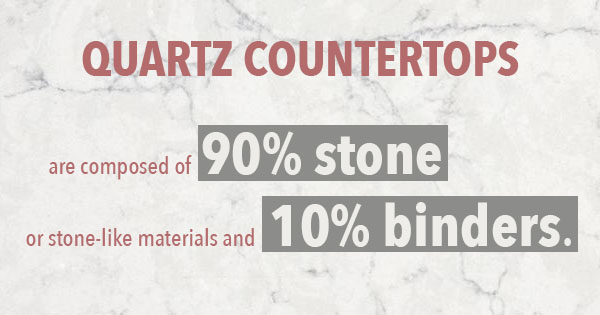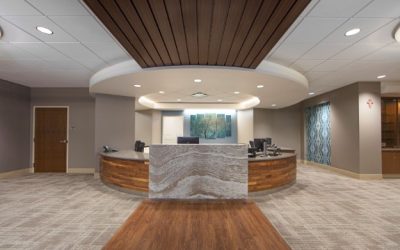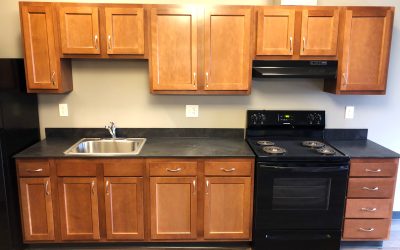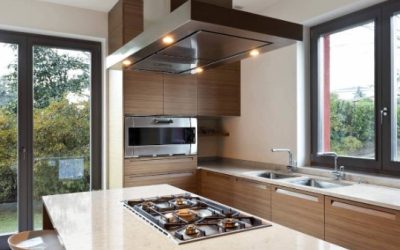
With so many countertop options on the market, it’s understandable that many homeowners (and even some contractors) might not always know which will work best for a given project. With so many advancements made in quality countertops over the past few years, your clients may not even know the differences between some of the most popular types of countertops. Today, we’re comparing solid surface versus quartz countertops. We hope this information will help when it comes time to make a materials decision with your quartz countertop distributors.
Solid Surface Countertops
You may know this type of countertop under a different name — Corian. Since the original patent expired, many brands have made their own solid surface countertops. Solid surface countertops are quite reasonably priced and are seen as a viable alternative to laminate countertops due to their no-muss, no-fuss qualities.
- Composition: Solid surface countertops are a combination of natural minerals and manmade polymers. Usually, they’re made of ATH (alumina trihydrate), epoxy or polyester resin, acrylic, and pigments.
- Aesthetic: These countertops are uniform in appearance, meaning they don’t have the same naturally occurring variances that something like marble or granite might. Although they can be buffed to attain a glossiness, their matte appearance is more preferable in terms of both look and durability. The seams on solid surface are the least visible of the two types of countertops.
- Maintenance And Installation: It’s best to have an expert install solid surface countertops, but some homeowners choose to DIY (with varying degrees of success). It does not need to be sealed and scratches can be sanded out.
- Durability: In general, solid surface countertops are softer and more prone to scorching and scratching. However, the durability factor may be offset by its costs, which are on the lower end of the scale.
Quartz Countertops
Also known as engineered stone, quartz countertops are the result of natural minerals combined with resins. It’s a more natural choice than solid surface countertops but is not quite as natural as marble, granite, or other stones. Quartz countertop distributors know that this material has skyrocketed in popularity in recent years.
- Composition: Typically, quartz countertops are composed of 90% stone or stone-like materials (like waste or crushed granite, marble, or recycled glass and mirrors) and 10% binders. In layman’s terms, it’s made of crushed stone held together by adhesive.
- Aesthetic: These countertops are smooth in appearance and touch with a glossy finish. They do feature visible seams, but a reputable contractor can hide them so they won’t show. Their look is rich and multi-dimensional, but uniform.
- Maintenance And Installation: Quartz does not need to be sealed, but these countertops do need to be installed by a professional. It’s still a relatively low maintenance option, particularly because its non-porous features will not absorb stains.
- Durability: Quartz is quite strong and will not usually scratch. Most quartz countertop distributors and manufacturers say their countertops can handle heat levels of up to 400 degrees Fahrenheit. Temperatures above that can scorch the material, but that treatment is very rare to begin with.
The type of countertop used will likely depend on the scope and needs of a given project. We hope that this guide can clear up some of the confusion surrounding these two options. To alleviate even more confusion — this time, in terms of pricing — feel free to use our SQUAD quoting tool to provide your clients with accurate quotes regarding the use of quartz countertops.



